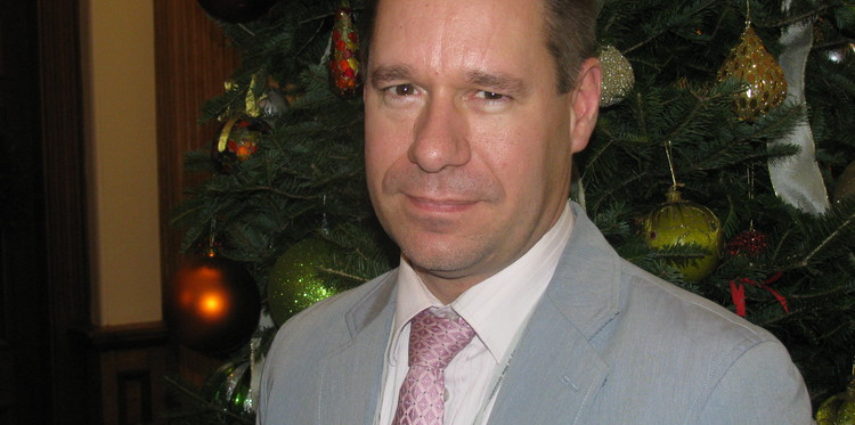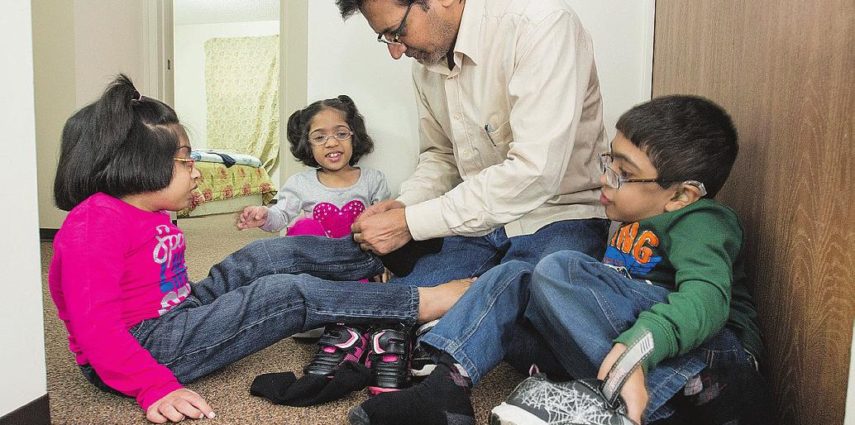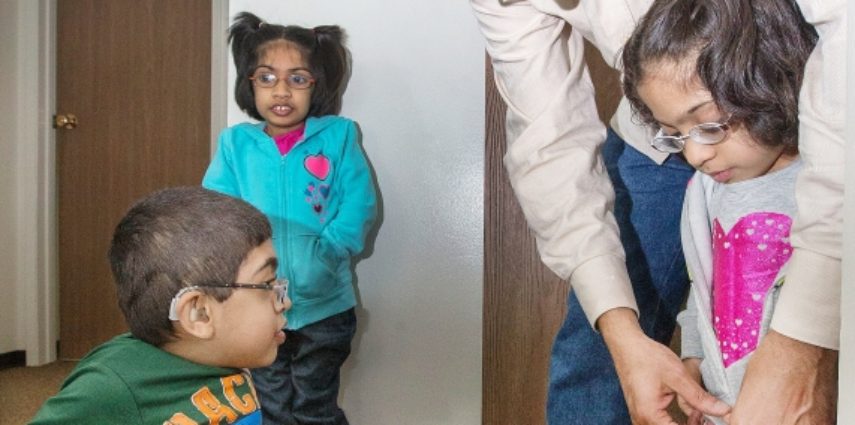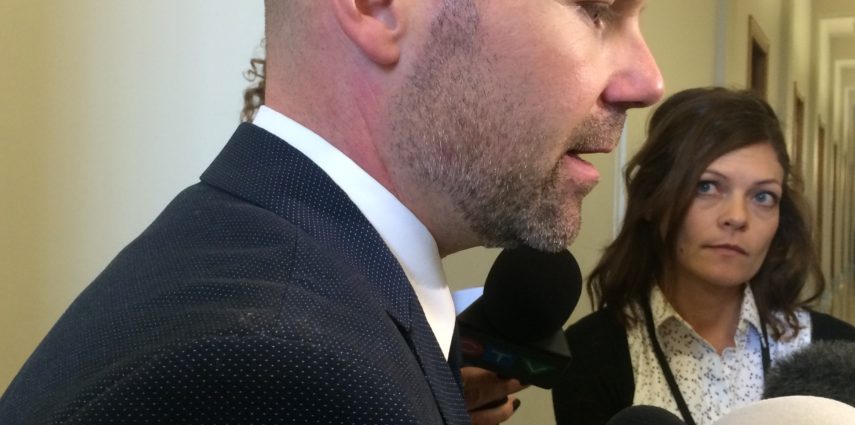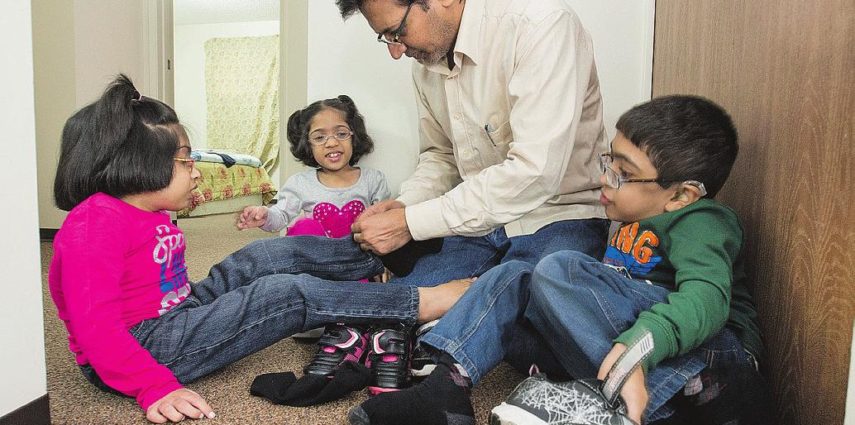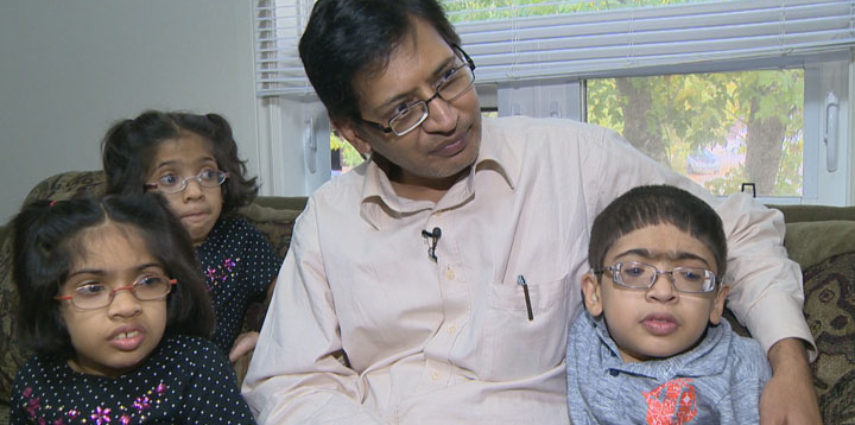CHRIS MORRIS Legislature Bureau
December 13, 2015
Carolle Mazerolle with her 10-year-old son Morgan Doucet. Doucet sufferers from a rare disease called Morquio Syndrome and is believed to be one of only 33 people in the country and the only known case in New Brunswick.
Photo: Jeremy Trevors/ Miramichi Leader
Carolle Mazerolle has been battling medical bureaucracies to get help for her son, Morgan, almost since he was born 10 years ago.
Now she has another fight on her hands, this time to get a new treatment that could finally help her beloved and brave little boy enjoy not only a pain-free life but also, possibly, a longer life.
“I want to give him this drug as quickly as possible,” Mazerolle said in an interview, sending a message directly to Health Minister Victor Boudreau.
“I want them (New Brunswick health officials) to make another decision on this. Morgan needs this right away. He gets worse by the minute and every moment he waits, his body is deteriorating. I don’t want to wait another year, not even another day. Please, just make the right decision.”
Mazerolle fights tears as she speaks. It has been a long, difficult time for Carolle, her partner Glen Doucet, Morgan, and other members of the family in Baie-Sainte-Anne as they cope with Morgan’s rare genetic condition called Morquio Syndrome.
The family finally felt hope last year after it was announced that Health Canada had approved a treatment, an enzyme replacement therapy, that has been shown to slow down or halt progression of the disease in patients.
Morgan is the only known person in New Brunswick with Morquio Syndrome and Carolle and Glen quickly applied to have the treatment covered for their son. After about a year, their request was denied in October, and no avenue for appeal was offered.
It has been a roller-coaster ride for the family.
“We all were all so hopeful when the treatment was approved,” Carolle said. “We thought everything is going to fall into place and Morgan will have a better life and live a lot longer. Then they refused us. I still have trouble believing it”
The treatment is expensive.
Andrew McFadyen, executive director of The Isaac Foundation, an Ontario-based advocacy organization that specializes in diseases like the one afflicting Morgan, says the list price for the enzyme replacement drug is about $300,000 per year.
However, McFadyen said a lower cost likely could be negotiated with the drug developer once Morgen gets the go-ahead for treatment from the province.
McFadyen was in Fredericton last week to meet with Boudreau and apply pressure to give Morgan a second chance at the treatment. He did not get the reassurances he was seeking, although he said Boudreau did agree to look at the case.
“New Brunswick health officials are telling this family to enter a long-term palliative approach to care for their child instead of ensuring that disease progression is halted now,” he said.
“They are allowing him to die instead of taking leadership and doing the responsible and ethical thing by providing him with the help he needs. It’s shameful, disgraceful.”
The Health Department says it is bound by privacy rules and cannot speak about Morgan’s case. Jake Stewart, opposition Tory MLA for Southwest Miramichi-Bay-du-Vin, has raised the issue in the legislature, appealing to the Liberal government to put politics aside and “just help this child.”
Carolle, Glen and McFadyen are planning to travel to Fredericton on Wednesday to press their case to have the treatment approved. Morgan may be there as well, although it is not certain.
Carolle said she knew something was wrong with Morgan shortly after he was born, although most children with the syndrome do not have it confirmed until four or five years of age.
Her baby seemed in pain right from the start and she remembers spending the first four months of his life sleeping on her back, holding him.
Carolle kept telling doctors something was wrong and they kept telling her he was just a bit slow and would be fine. Finally, at 15 months of age, a doctor in Saint John took x-rays and discovered bones in Morgan’s neck were broken.
Now in Grade 5, Morgan is fully developed intellectually and socially, and has lots of friends. But he has never walked, can stand only for a few seconds holding onto something, has almost constant headaches and is often sick to his stomach.
The syndrome has deformed his body, but not his spirit, Carolle says.
“This is a small community and everyone knows him,” she said. “The other kids are all great with him.”
McFadyen said sufferers of Morquio Syndrome lack an enzyme in their blood that breaks down cellular waste in the body. The waste builds up in the bones, tissues, organs, and muscles and leads to such symptoms as heart and airway disease, corneal clouding, stiffening of the joints, shortened stature, and premature death.
He said the treatment being denied to Morgan dramatically slows or halts the disease, improves pulmonary function, walking ability, and gives patients the chance at a normal life.
There are 33 cases of Morquio in Canada. The treatment currently is funded in Saskatchewan, Ontario and Quebec.
Source: https://www.telegraphjournal.com/telegraph-journal/story/45053995/mom-pleads-with-liberal


